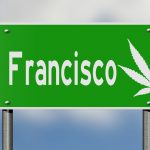Tougher restrictions on where cannabis outlets can open in San Francisco were proposed last week by members of the Board of Supervisors, prompting a backlash from supporters of recreational marijuana.
The debate resumes today at the board’s Land Use and Transportation Committee, which is voting on how to regulate recreational cannabis.
Across California, recreational cannabis becomes legal on Jan. 1 — after voters approved Proposition 64 last year — and cities across the state, including San Francisco, are determining how to regulate it locally.
State Sen. Scott Wiener blasted the new tougher regulations proposed last week by members of the Board of Supervisors in a Facebook post on Friday, arguing they were “over the top” and would “kill off” the cannabis industry.
Wiener suggested members of the board are bowing to a “vocal minority” but wouldn’t specify what he meant by that. He pointed to the small percentage of voters in San Francisco who opposed Prop. 64, which was approved by 74 percent of the voters in The City.
Tom Temprano, a City College of San Francisco trustee and progressive advocate, joined the criticism of the supervisors in a tweet sent Saturday.
“Disappointed to see #SF influenced by ‘reefer madness’ pseudo-science. #Cannabis #SmallBiz make good neighbors IME,” Temprano tweeted. (IME stands for “in my experience.” )
When it comes to regulating cannabis, supervisors are predominantly hearing from three main groups.
There is an organized segment of Asian residents, who regularly turn out at public hearings at City Hall to denounce cannabis as a harmful drug that would adversely impact their children. They call for tougher regulations. Last month, their opposition prompted the Board of Supervisors to block The Apothecarium’s proposed medical cannabis dispensary from opening on Noriega Street in the Sunset, where a cannabis outlet has yet to open.
There are also the cannabis business operators themselves, who call for less regulation.
Lastly, there are those who would like to see the cannabis industry prosper and who want to create business and employment opportunities for black residents who were disproportionately impacted by the war on drugs.
The committee intends to send a final proposal to the full board for a vote on Nov. 14.
But if the board approves the restrictions being discussed, Wiener said it would “ban all new cannabis retail businesses in almost all of San Francisco.”
The committee shrunk the areas citywide where cannabis outlets could open, and individual board members are taking that a step further by proposing even more limits in neighborhoods they represent.
The land use committee voted last week to amend proposed recreational cannabis regulations to increase the buffer zones around schools — where cannabis outlets wouldn’t be able to open — from the proposed 600 feet to 1,000 feet, even though the state law legalizing recreational cannabis allows for 600 feet.
Supervisors Mark Farrell and Katy Tang supported it, and Supervisor Jeff Sheehy opposed it. Sheehy is one of the most vocal supporters of recreational cannabis on the board.
Board members also want to impose the distance requirement around childcare centers.
The limits being proposed by board members for the districts they represent vary. Farrell, for example, proposed allowing only one cannabis outlet in the commercial corridors he represents.
Supervisor Aaron Peskin wants to ban cannabis outlets in Chinatown altogether, as does Supervisor Norman Yee in West Portal. Tang wants to impose a cap in the Sunset and prohibit cannabis outlets in ground-floor retail spaces in commercial corridors while requiring a conditional use permit to open on the second floors. Supervisor Jane Kim wants to cap the number of cannabis dispensaries to the existing amount currently open in the South of Market and Tenderloin neighborhoods, including the handful of establishments pending approval.
A cap on the three existing cannabis outlets in the Excelsior-Outer Mission commercial corridor was approved by the committee last week. Supervisor Ahsha Safai, who represents the area, said he was “reflecting the voice of the neighborhoods,” the San Francisco Examiner previously reported.
Wiener said San Francisco will miss out on the benefits the industry. “We have a *huge* opportunity to participate in this industry in a major way, with all the jobs, revenue, tourism, and creativity it brings. Yet, with these proposals, San Francisco is considering actually giving up this mantle,” Wiener wrote on Facebook.
Among those seeing an opportunity is Vince Courtney, Jr., a representative of union Laborers International Union Local 261. Courtney wants Local 261 to create an apprenticeship program to train workers for cultivation jobs.
The labor group currently offers an apprentice program for gardeners working in Golden Gate Park in partnership with the Recreation and Park Department.
“We are excited about collaborating with the growers and the industry to put together something with The City and with this board,” Courtney said last week.
Jim Lazarus, the San Francisco Chamber of Commerce’s senior vice president of public policy, told the committee that 600 feet was the suitable buffer zone around schools and to not overly regulated cannabis outlets but treat them as they would other legal businesses, which they have now become.
“There is this aura of fear that really is not founded,” Lazarus said.
Mayor Ed Lee, who introduced the proposed regulations on Sept. 26, isn’t weighing in on the latest twist in the debate over the regulations.
“It is critical that the Board engages on this complex issue,” the mayor’s spokesperson Ellen Canale said Friday. “This is part of the legislative process and the Supervisors play an important role in shaping this emerging industry in San Francisco.”
(1158)





Leave A Reply